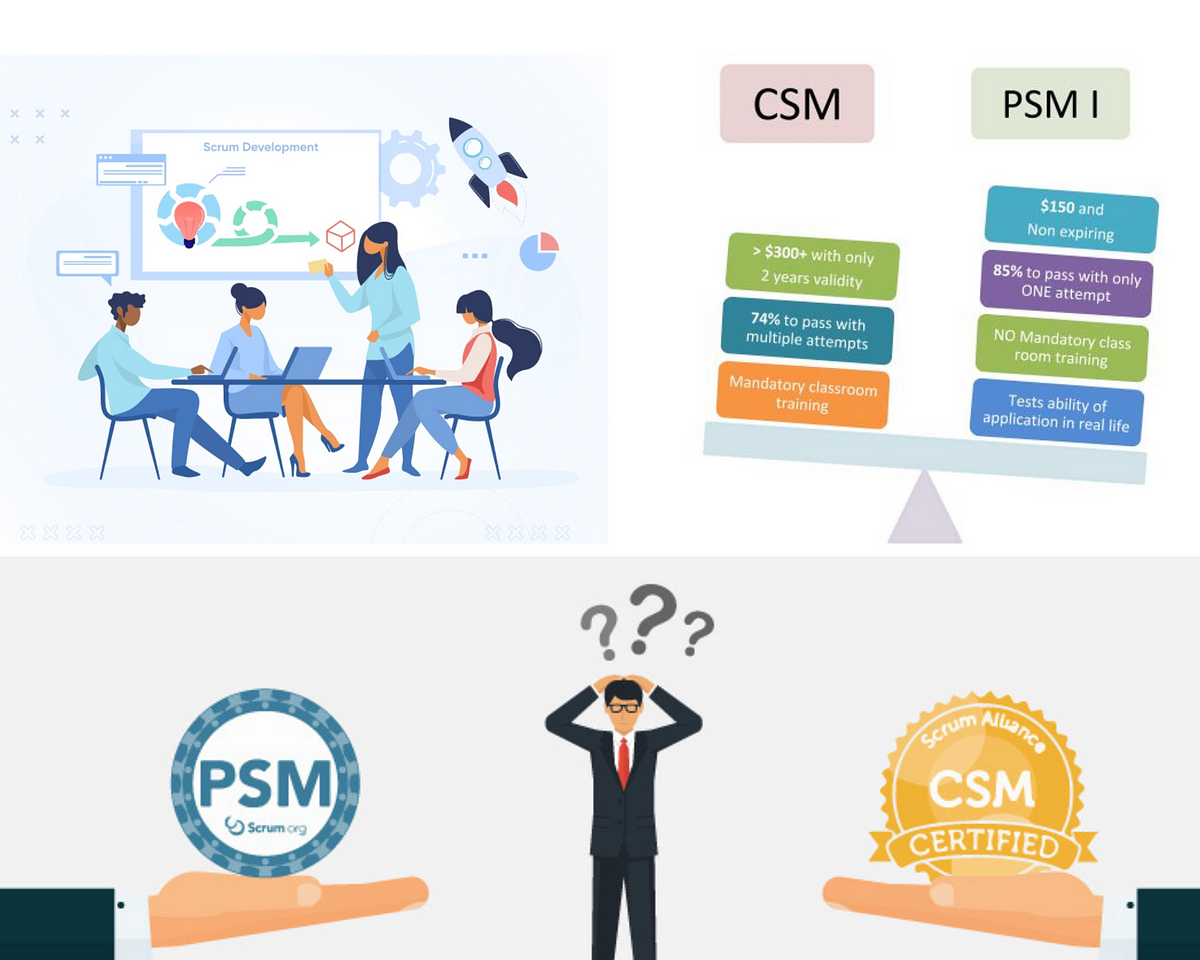All You Need To Know About the Technicalities of PSM 1 Certification
The Professional Scrum Master (PSM) 1 certification, under the aegis of Scrum.org, is a globally recognized certification confirming the understanding and application of the concepts and principles of Scrum. A framework derived from agile methodologies, Scrum facilitates iterative development and fosters a collaborative environment. The certification focuses on equipping individuals to optimally utilize the Scrum framework in various organizational contexts.
Considerations Before Certification
Before opting for the PSM 1 certification, one needs to understand that the essence of the Scrum framework lies in its Agile nature. It primarily calls for situation adaptability, continual learning, team collaboration, customer involvement, delivering value, and embracing change.
Additionally, the certification requires proficiency in Scrum theory, rules, roles, and artifacts. Therefore, readiness for these aspects is critical.
Preparation and Examination
The preparation for PSM 1 certification fundamentally starts through familiarization with the Scrum Guide. Official Scrum.org classes, while optional, can greatly assist in mastering the Scrum framework. The examination consists of 80 multiple-choice questions, to be attempted within 60 minutes. A score of 85% is a minimum requisite for certification, necessitating thorough conceptual understanding and proficiency.
Value of PSM 1 Certification
PSM 1 certification is highly esteemed among employers. Certified individuals bring onboard an understanding of the essence of Scrum, experience in its implementation, and the skills to enhance teamwork, collaboration, and productivity. Enabled with the know-how to tackle complex projects and apply adaptive and iterative principles, they bolster the organization’s ability to deal with volatile market dynamics.
Application of PSM 1 Certification
PSM 1 certified professionals apply their knowledge in various scenarios, including fostering team cohesion, executing sprint planning, conducting daily scrum meetings, reviewing completed tasks, and retrospection of the sprint. They contribute not just in team efficiency but also in creating an environment conducive to learning and growth.
The Role of Scrum Master
The Scrum Master plays a crucial role in the context of the Scrum framework. They ensure that the team collectively understands and implements Scrum values and principles. They guide the Product Owner, Development Team, and stakeholders to effectively participate in Scrum activities. Besides, they also eliminate any possible hindrances impacting the project’s progress.
Continued Learning in Scrum
Learning in Scrum does not stop once the PSM 1 certification has been attained. Pursuit of more advanced certifications such as PSM II and PSM III, attending seminars and webinars, reading publications, and active networking with other Scrum practitioners keep the learning process going. Furthermore, experience plays a significant role in deepening the knowledge and honing practical implementation skills.
Significance of PSM 1 Credential in Organizations
From an organizational perspective, PSM 1 certified individuals bring the promise of robust project management, improved productivity, and better alignment with customer requirements. Their certification demonstrates the commitment to customers of delivering high-value products on time, building customer trust, and improving business prospects.
Conclusion
PSM 1 certification carries significant relevance in the modern project-driven world. Preparation for the exam requires dedication, understanding, and practice. But the rewards are a deep knowledge of Scrum and agile principles and a boost to your career prospects. Evoking recognition from employers, this certification leads to better opportunities and avenues. The pursuit of Scrum knowledge is a lifelong journey, with PSM 1 being the first significant step on this path. To conclude, the prerequisites of PSM 1 certification facilitate a comprehensive understanding and practical implementation of Scrum, fortifying an individual’s ability to improve an organization’s process and performance fluently.
In the fast-paced business environment, PSM 1 credential holders are looked upon as pillars of project success and organizational growth. The know-how they bring onboard not only ensures project delivery aligning with customer expectations but also fosters a work culture that focuses on team collaboration, continual learning, and delivering value.






